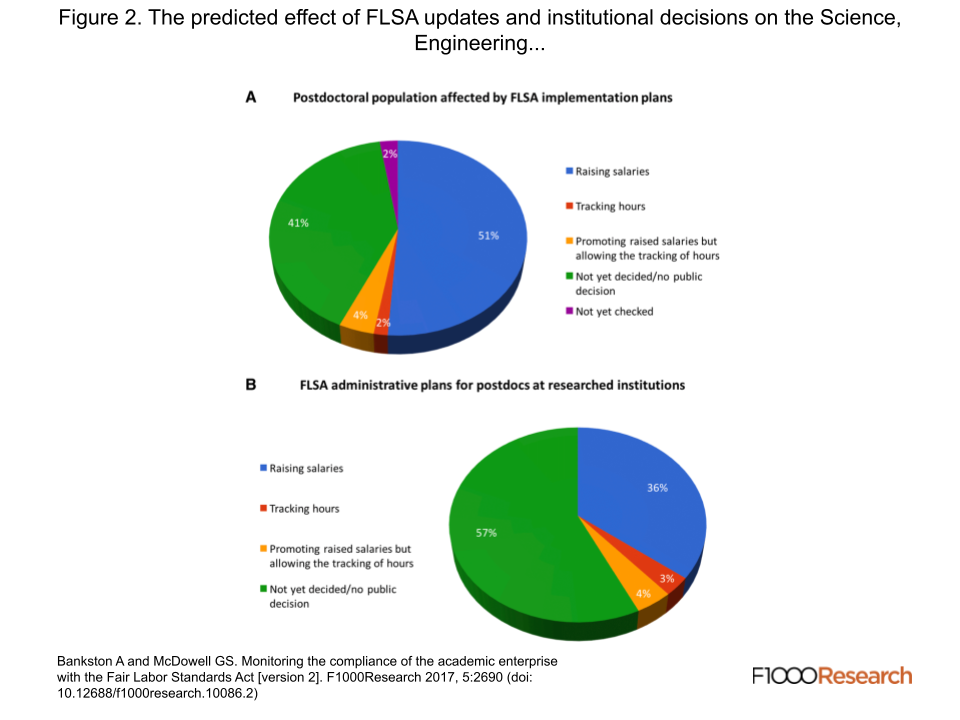Making ECR Voices Heard
Home/Our Impact/
Making ECR Voices Heard
ECR Representation in Important Spaces
Future of Research strives to give a voice to early career researchers, particularly in spaces where we are normally not given one. With this in mind, we have always used our positionality and engagement to challenge those in power to improve the biomedical research enterprise for ECRs. See the list below for the ways in which our board members have represented the voices of ECRs and advocated for actionable policy changes.
Next Generation Researchers Initiative
Published in 2018 by the National Academies of Science, Engineering, and Mathematics (NASEM), the “Next Generation of Biomedical and Behavioral Sciences Researchers: Breaking Through” consensus report lays out the training and career landscape for early career researchers and the challenges they face in the current ecosystem. Our Executive Director and President at the time, Gary McDowell, PhD and Jessica Polka, PhD, were authors of the study, and represented the voices of early career researchers during the drafting of the report. Among its key takeaways, the report:
- Called for increased transparency, shared responsibility, and sustainability of the biomedical research enterprise, suggesting Congress establish a governing and oversight body to ensure this goal
- Called for an increase in support, from institutions, principal investigators, and federal funding agencies, for early career researchers to transition to independent research positions
- Called for building a better ecosystem for the independence of early career researchers.
- Called for an increase in the funding support for early career researchers engaging in innovative research
- To our knowledge, neither Congress, NIH, nor individual institutional leadership has made any significant strides toward these actionable items and goals since the publication of the report.
To our knowledge, neither Congress, NIH, nor individual institutional leadership has made any significant strides toward these actionable items and goals since the publication of the report.
The NIH grant cap
In 2017, the NIH developed a Grant Support Index (GSI) by which to measure the degree to which an investigator was being supported through NIH. A preliminary study by NIH leadership found dimishing returns after 3 R01s or equivalent. Because of this, a move towards capping NIH support for investigators was suggested as a way to increase funding parity for ECRs trying to move towards independence and R01 funding. The initiative received loud and vocal support by many in the ECR community; those in well-funded institutions and well-funded research groups were vocal in their disapproval, claiming it would undermine NIH’s meritocratic approach to funding decisions (despite studies like Ginther and Hoppe showing time and again that NIH funding decisions are anything but meritocratic).
While Future of Research understood that the GSI idea as originally suggested failed to take into account many factors, including that of team science and collaborative grants, we were dismayed as an organization by the lack of transparency in NIH’s decision to entirely forgo the idea, especially after reading letters that NIH received from the privileged few who opposed the project.
On June 8th 2017, Fátima Sancheznieto*, PhD, then a grad student and volunteer of the organization (now our President), spoke up for ECRs against the lack of transparency at the NIH’s biannual advisory committee to the director (ACD) meeting. Fátima’s quotes and advocacy were featured in Science News.
Notes: At the time, Fátima had not yet transitioned and was going by her previous name. Fatu’s remarks in the video are from 4:11:25 to 4:23:34
Due to her outspoken advocacy on the topic, Fátima was invited to sit on a working group for the ACD’s new initiative, the Next Generation Researcher’s Initiative, set to provide recommendations to the ACD on changes that would equally if not better support ECR funding disparities than the GSI. A final draft report of the working group was posted on the NIH ACD website on December 2018. To our knowledge, no final report was ever published, and none of the suggested working group changes implemented at NIH.
ARPA-H
In 2021, President Biden called for the creation of ARPA-H, an institute similar to DARPA, but housed within the NIH, that would drive innovative research. The NIH held listening sessions to gather feedback on the creation of ARPA-H from various community organizations. Future of Research was invited to voice comments. You can find the transcript of our comments here.
Future of Research remarks begin at 00:31.
How to keep the next generation of brilliant scientists
Future of Research president, Fátima Sancheznieto, Ph.D. gave a TEDtalks about how to keep the next generation of scientists. While $60 billion is spent in the US, each year on biomedical research, just 3% requires leadership training for scientists. Trainees report stress, depression, and anxiety — and some leave the field. Imagine the future of scientific research with improved communication, equity and inclusion, and professional development. Better leaders = better science.
Fair Labor Standards act and effects on postdoc salaries
In December 2016, planned updates to the Fair Labor Standards Act (FLSA) would have increased the salary threshold for overtime exemption, affecting many postdoctoral researchers whose salaries were below the new threshold. One week before the changes were due to go into effect, they were blocked by an injunction, and eventually struck down entirely. Throughout this period, Future of Research gathered data from university websites and contacted HR departments in order to track what universities were doing to comply with the FLSA. We ended up informing many postdocs of what was happening at their institution – plans for salary raises and overtime tracking – before their own institution did. This led to the postdoc salaries project.


